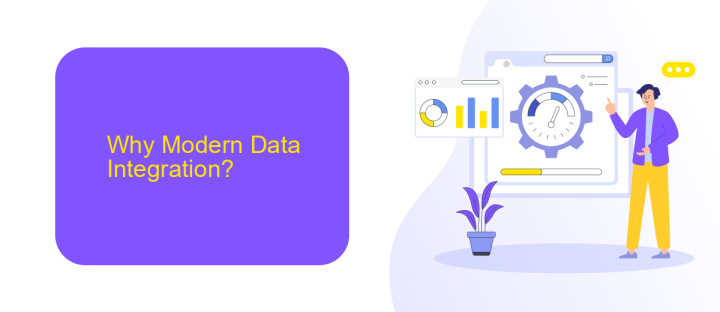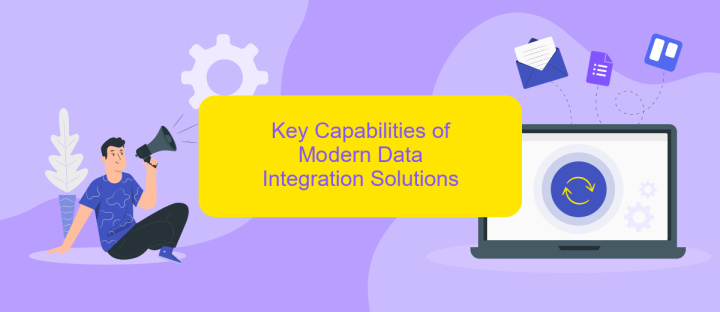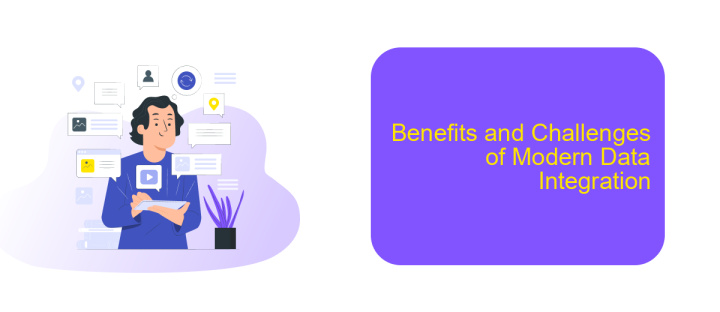Modern Data Integration
In today's digital era, modern data integration is crucial for businesses to harness the full potential of their data. By seamlessly combining data from various sources, organizations can achieve greater insights, streamline operations, and make more informed decisions. This article explores the latest trends, techniques, and technologies driving the evolution of data integration in the contemporary business landscape.
Introduction: The Rise of Data Integration
The rapid advancement of technology has led to an explosion of data from various sources, necessitating the need for efficient data integration solutions. Modern data integration is the process of combining data from different sources and providing users with a unified view. This evolution is driven by the growing complexity of data ecosystems and the increasing demand for real-time analytics.
- Seamless data flow between disparate systems
- Enhanced data accuracy and consistency
- Improved decision-making capabilities
- Cost-effective data management
One of the tools that has emerged to simplify data integration is ApiX-Drive. This service allows businesses to automate data transfers between various applications without the need for extensive coding. By leveraging such platforms, organizations can ensure that their data is always up-to-date and accessible, leading to more informed business decisions and streamlined operations.
Why Modern Data Integration?

In today's rapidly evolving digital landscape, modern data integration is essential for businesses seeking to stay competitive. Traditional methods of data integration often fall short due to their complexity and inability to handle the vast amounts of data generated daily. Modern data integration solutions offer a more streamlined approach, enabling organizations to seamlessly connect disparate data sources, ensuring data consistency, accuracy, and accessibility. This not only enhances decision-making processes but also drives operational efficiency and innovation.
One of the key advantages of modern data integration is the ability to leverage advanced tools and platforms like ApiX-Drive. ApiX-Drive simplifies the integration process by providing a user-friendly interface and robust automation capabilities. It allows businesses to easily connect various applications and data sources without the need for extensive coding or technical expertise. By utilizing such services, organizations can quickly adapt to changing business needs, reduce integration costs, and focus more on strategic initiatives rather than technical challenges.
Key Capabilities of Modern Data Integration Solutions

Modern data integration solutions offer a range of key capabilities that streamline the process of connecting disparate data sources and ensuring seamless data flow across systems. These solutions are designed to handle the complexities of today's data environments, providing businesses with the tools they need to stay competitive.
- Automated Data Synchronization: Ensures real-time data updates across multiple platforms, reducing manual intervention.
- Scalability: Supports growing data volumes and an increasing number of data sources without compromising performance.
- Data Transformation: Converts data into the required format for analysis and reporting, enhancing data usability.
- Security and Compliance: Provides robust security measures and ensures compliance with data protection regulations.
- Ease of Integration: Tools like ApiX-Drive facilitate easy setup and management of integrations, even for non-technical users.
By leveraging these capabilities, businesses can enhance their data integration processes, leading to more informed decision-making and improved operational efficiency. Solutions like ApiX-Drive simplify the integration landscape, making it accessible for organizations of all sizes to achieve seamless data connectivity.
Benefits and Challenges of Modern Data Integration

Modern data integration offers a range of benefits that streamline business processes and enhance decision-making. By integrating data from various sources, organizations can achieve a unified view of their operations, leading to improved efficiency and more informed strategic planning. Additionally, automated data integration tools, such as ApiX-Drive, simplify the process, reducing the need for manual interventions and minimizing errors.
However, modern data integration also presents several challenges. One of the primary issues is ensuring data quality and consistency across different systems. Integrating data from disparate sources can lead to discrepancies and inaccuracies, which can affect business outcomes. Moreover, the complexity of setting up and maintaining integrations can be daunting, especially for organizations with limited technical expertise.
- Enhanced decision-making through unified data views
- Increased operational efficiency
- Reduction in manual data handling errors
- Challenges in maintaining data quality and consistency
- Complexity in setup and maintenance
Despite these challenges, leveraging modern data integration tools like ApiX-Drive can significantly mitigate risks and streamline the integration process. By automating data flows and ensuring consistency, businesses can focus on deriving actionable insights from their data, ultimately driving growth and innovation.


Considerations for Implementing Modern Data Integration
When implementing modern data integration, it is crucial to consider the scalability and flexibility of the integration solution. The chosen platform must be capable of handling increasing amounts of data and adapting to the evolving needs of the organization. Additionally, it should support a wide range of data sources and formats to ensure seamless integration across various systems. Ensuring data quality and consistency is another vital consideration, as inaccurate or inconsistent data can lead to erroneous insights and decisions.
Security and compliance are also paramount in modern data integration. The integration solution must adhere to industry standards and regulations to protect sensitive information and maintain data privacy. Platforms like ApiX-Drive can simplify the integration process by offering pre-built connectors and automation tools, reducing the time and effort required to set up and manage integrations. ApiX-Drive also provides robust security features, ensuring that data is transferred and stored securely. By addressing these considerations, organizations can achieve efficient and reliable data integration, driving better business outcomes.
FAQ
What is modern data integration?
Why is data integration important for businesses?
How does API-based data integration work?
What are the benefits of using a data integration platform?
Can small businesses benefit from data integration?
Do you want to achieve your goals in business, career and life faster and better? Do it with ApiX-Drive – a tool that will remove a significant part of the routine from workflows and free up additional time to achieve your goals. Test the capabilities of Apix-Drive for free – see for yourself the effectiveness of the tool.

